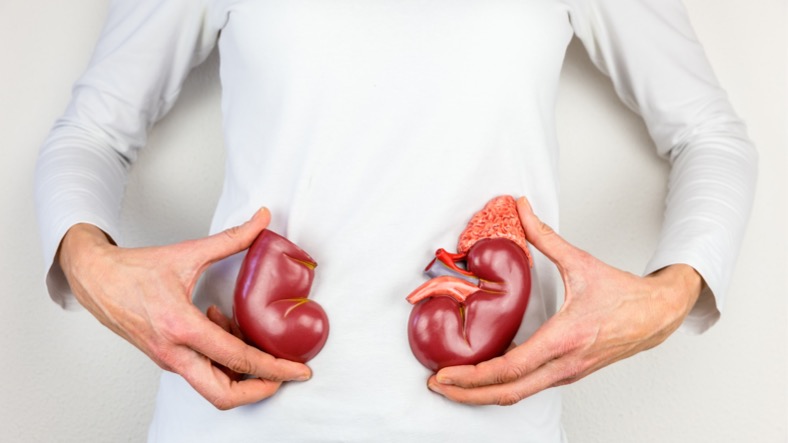Feeling unusually swollen, short of breath, or like you’re retaining water that just won’t go away? These symptoms may be a sign of hypervolemia, also known as fluid overload, a condition where the body holds onto more fluid than it should. For patients with chronic kidney disease (CKD) or heart conditions, hypervolemia is a common and potentially serious concern.
At The Kidney & Hypertension Center, we help patients manage conditions like hypervolemia every day.
What Is Hypervolemia?
Hypervolemia is a medical term that means there’s too much fluid in the body’s bloodstream or tissues. This extra fluid can collect in various parts of the body, especially the legs, ankles, lungs, and abdomen, leading to swelling (edema), discomfort, and in some cases, difficulty breathing.
While mild fluid retention can be harmless, more severe cases of hypervolemia can interfere with normal organ function and become life-threatening if not addressed.
Symptoms of Hypervolemia
While the signs of hypervolemia can vary depending on how much fluid is retained and where it accumulates, some of the most common symptoms include:
- Swelling (edema) in the legs, ankles, feet, hands, or face
- Rapid weight gain (from fluid, not fat)
- Shortness of breath or difficulty breathing, especially when lying down
- Abdominal bloating or discomfort
- Elevated blood pressure
- Fatigue or weakness
- Decreased urination, or sometimes more frequent urination at night
If you experience these symptoms, especially if they come on suddenly or worsen quickly, it’s important to contact your healthcare provider.
What Causes Hypervolemia?
Hypervolemia can result from several underlying issues, but kidney disease is one of the most common causes. When the kidneys aren’t functioning properly, they may struggle to eliminate excess sodium and water, allowing fluid to build up in the body.
Other causes of hypervolemia include:
1. Chronic Kidney Disease (CKD)
As kidney function declines, the body holds on to more fluid and electrolytes. CKD-related hypervolemia is especially common in patients on dialysis or in later stages of the disease.
2. Heart Failure
When the heart can’t pump effectively, blood can back up in the veins, causing fluid to leak into surrounding tissues, particularly in the lungs and lower extremities.
3. Liver Disease (Cirrhosis)
The liver helps regulate fluid balance through protein production. Liver damage can lead to ascites (fluid buildup in the abdomen) and overall fluid overload.
4. Excessive IV Fluids
Receiving too much intravenous fluid in a hospital setting can tip the balance and cause hypervolemia. This is especially true if you already have heart or kidney issues.
5. Hormonal or Medication Imbalances
Certain medications (like corticosteroids or NSAIDs), as well as conditions that affect hormones (such as SIADH), can cause the body to retain sodium and water.
How to Know if You Have Hypervolemia
To diagnose hypervolemia, your provider will review your symptoms, medical history, and may run several tests, including:
- Physical exam to assess swelling, lung sounds, and blood pressure
- Blood tests to check kidney function, sodium levels, and other electrolytes
- Urinalysis to evaluate how well your kidneys are excreting fluid
- Imaging tests, such as chest X-rays or ultrasounds, to identify fluid buildup in the lungs or abdomen
- Weight monitoring to track sudden changes in body fluid
How is Hypervolemia Treated?
Treatment depends on the underlying cause and the severity of fluid buildup. The primary goal is to remove the excess fluid safely while managing the condition that caused it.
1. Diuretics (Water Pills)
These medications help the body expel excess sodium and water through urine. Commonly used diuretics include furosemide (Lasix) or spironolactone. Your provider will monitor your response and adjust the dose as needed.
2. Dialysis
For patients with advanced kidney disease, dialysis may be required to remove fluid that the kidneys can no longer filter. Dialysis can also be used in emergency situations when fluid overload becomes life-threatening.
3. Fluid and Sodium Restrictions
Limiting fluid and salt intake can help prevent fluid buildup. You may be advised to:
- Drink only a specific amount of fluid each day
- Avoid high-sodium foods like canned soups, deli meats, and salty snacks
- Use salt-free seasonings or herbs to flavor meals
4. Treating the Underlying Cause
Whether it’s managing heart failure, adjusting medications, or addressing liver disease, treating the root problem is essential for long-term fluid balance.
Tips for Preventing Fluid Overload
If you’re at risk for hypervolemia due to CKD or hypertension, these everyday tips may help:
- Weigh yourself daily, and report sudden changes to your provider
- Track fluid intake, especially if you’ve been given a daily limit
- Read food labels for sodium content
- Elevate your legs to help reduce swelling
- Take medications as prescribed, especially diuretics
- Stay consistent with follow-up care and lab work
Partnering with You to Manage Hypervolemia and Kidney Health
At The Kidney & Hypertension Center, we understand how overwhelming fluid overload can feel. Whether you’re dealing with chronic kidney disease, high blood pressure, or complications from another condition, our team is here to help.
We provide personalized care plans, close monitoring, and compassionate support to help you feel your best and avoid unnecessary complications.
If you’re concerned about swelling, weight gain, or other signs of hypervolemia, schedule an appointment with our expert team today.
Your health matters, and we’re here to help you manage it with confidence.




